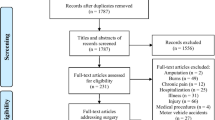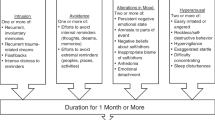Abstract
Purpose
Highlight clinical pearls in the practice of pediatric otolaryngology not routinely taught in residency/fellowship training, nor published in textbooks. This article aims to inspire in readers increased awareness when approaching children to maximize clinical efficacy and efficiency, while minimizing potential trauma to the children. It is beyond the scope of the article to discuss post-traumatic stress disorder (PTSD) in children in the context of medical care settings, except to highlight that single or repeated standard outpatient ENT office procedures can cause acute and chronic medical traumatic stress and even PTSD with long term interference of daily function.
Recent Findings
Medical Traumatic Stress Working Group of the National Child Traumatic Stress Network (NCTSN) created a “toolkit” and comprehensive guide for providers to minimize traumatic stress for children and families. They introduce the D-E-F protocol: reduce Distress, promote Emotional support, and remember the Family to help recognize and treat traumatic distress as an integral part of health care delivery [1]. The author shares pearls gained after two decades of direct patient care and thousands of encounters and office visits and hope this chapter increases awareness and inspires inclusion of formalized training on pediatric medical traumatic stress, so that those who dedicate their careers in caring for children can understand the potential iatrogenic psychological effects that medical care has on children [2]. This topic is worthy of quality improvement efforts, clinical research, and collaborative training across all roles of the care team to ensure optimal patient-centered care and experience for the most vulnerable humans—children.
Summary
While clinical and surgical training in otolaryngology focus on specialty and subspecialty specific knowledge and surgical expertise, there are many clinical pearls not routinely taught but acquired over years of practice, which can vastly improve the interaction and experience for pediatric patients, their families, and the physician. Furthermore, physicians are not formally trained and most may be unaware that children and their families (up to 80%) experience traumatic stress reactions following either life threatening illness, injury, painful medical procedures, and at least 20–30% of parents and 15–25% of children/siblings can have persistent traumatic stress reactions that impair daily functioning. When persistent traumatic stress develops, it will negatively impact future treatment adherence and holistic healing (1). Since medical visits and office procedures are episodic and physicians do not get to observe the aftereffects of traumatic experiences, increasing awareness and sharing of clinical pearls are of paramount importance. Increased awareness and mastering pearls for clinical otolaryngology practice supports compassionate yet higher efficiency and effective care in office settings.
Similar content being viewed by others
References
The National Child Traumatic Stress Network: Pediatric Medical Traumatic Stress Toolkit for Health Care Providers. https://www.nctsn.org/sites/default/files/resources/pediatric_toolkit_for_health_care_providers.pdf. Accessed 30 Mar 2022.
Kassam-Adams N, Butler L. What do clinicians caring for children need to know about pediatric medical traumatic stress and the ethics of trauma-informed approaches? AMA J Ethics. 2017;19(8):793–801. https://doi.org/10.1001/journalofethics.2017.19.8.pfor1-1708 (PMID: 28846519).
Author information
Authors and Affiliations
Corresponding author
Ethics declarations
Conflict of Interest
Julie L. Wei reports no conflict of interest.
Human and Animal Rights and Informed Consent
This article does not contain any studies with human or animal subjects performed by any of the authors.
Additional information
Publisher's Note
Springer Nature remains neutral with regard to jurisdictional claims in published maps and institutional affiliations.
This article is part of the Topical collection on PEDIATRIC OTOLARYNGOLOGY: Challenges in Pediatric Otolaryngology
Rights and permissions
About this article
Cite this article
Wei, J.L. Clinical Pearls in Pediatric Otolaryngology. Curr Otorhinolaryngol Rep 10, 231–237 (2022). https://doi.org/10.1007/s40136-022-00413-6
Accepted:
Published:
Issue Date:
DOI: https://doi.org/10.1007/s40136-022-00413-6




